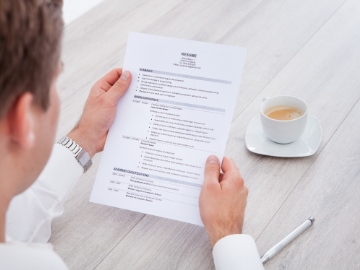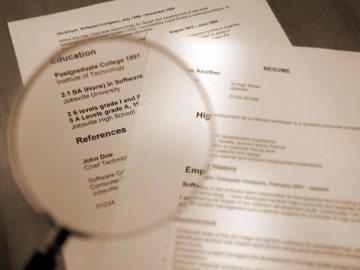How to Write a Follow-up Email for a Job Application

Job hunting alone is already a tedious task. Crafting a well-written resume, searching for relevant job postings, and sending out applications takes a lot of time and preparation. There's also the waiting game that follows, which creates a feeling of uncertainty. All these require great patience and persistence throughout.
Once there are timely opportunities, it's essential to know how to write a follow-up email for a job properly. Sending follow-up emails shows the companies you've applied for that you care about your application status and are interested in working for them, making you a valuable candidate.
When to Send a Follow-up Email After Your Application
Let's say it's been several days since you applied for a suitable role, but you haven't received any feedback from the company. You may opt to send a follow-up email after the application, but when should you do so? The timing depends on which stage of the application you're currently in.
- For a newly submitted application: Follow up within 5-10 business days.
- After going through the phone screening: Follow up within the same day.
- For an in-person interview: Follow up on the same day or the day after.
- For an email regarding a pending update: Follow up at least after 5-7 business days.
Apart from the right timing, it's important to avoid excessively sending follow-up emails. As tempting as it is to know your application status, persistently checking on it can hurt your chances of landing a new job. Recruiters have to sort through other applications, too, so you must wait like the rest.
How to Write an Effective Follow-up Email
Here are five best practices on how to write a follow-up email for a job:
-
Make it clear and concise
Go straight to the point in your follow-up email. Make your email's content brief and understandable. Raise all urgent questions and concerns. Other applicants will also send follow-up emails after their applications, so find a way to make yours concise but substantial.
Recruiters can only do so much in a day, so consider how long it'll take them to finish reviewing all the follow-up emails.
-
Be polite and professional
Always maintain a respectful and professional tone. Sending follow-up emails doesn't entitle you to demand immediate answers regarding your application status. You want to avoid coming off as rude and selfish. As a way of showing appreciation, include a short message to thank the recruiter for reviewing your application.
-
Emphasize your qualifications
Highlight the reasons why you think you're most qualified for the job. Explain how your experience and skillsets are highly fitting. If possible, mention significant contributions and awards from your previous occupation.
Doing these things gives you a competitive edge over other applicants. With some luck, you might convince recruiters to consider hiring you for the job.
-
Reach out to a trusted friend or family member to help edit your email
Ask a friend or family member you're comfortable with to assist you in reviewing your follow-up email. They can guide you on what to add, what to avoid discussing, and what to retain.
Make sure to reach out to those familiar with your work background and skillsets. Getting their opinions is a great way to help refine your follow-up email and make it more appealing.
-
Take the time to proofread your email
Proofreading is a must. Review all parts of your follow-up email for possible grammatical errors. You can't afford to send a follow-up email full of typos. The last thing you want is for the recruiter to think you're lousy and have poor attention to detail.
Follow Your Dream Career
Follow-ups are part of the application process. They can be frustrating, but knowing how to write an effective follow-up email for a job and timing it well boosts your chances of landing your dream role.
With Career.com, finding and following your dream career is made easier and hassle-free.


